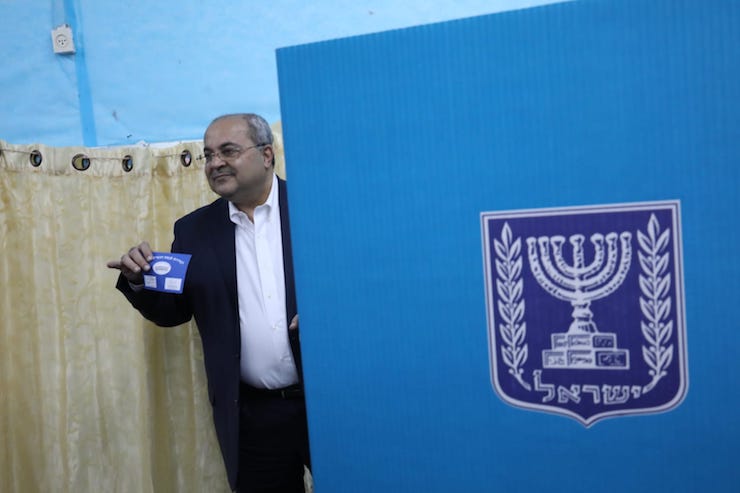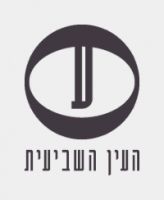Israel’s leading news outlets included not a single Arab panelist on Election Day. The other stations didn’t fare much better.
By Oren Persico

Israel’s top-rated news channel did not include a single Arab speaker on Election Day last week, according to the “Representation Index,” a joint initiative of the Israeli NGO Sikkuy and Ifat Media Information, which provides quantitative and qualitative analysis of Arab citizens of Israel who are interviewed on leading news and current affairs programs.
Israel’s largest news companies — Channel 12, Channel 13, and Kan, the Israeli Public Broadcasting Corporation, respectively — established special makeshift studios across Jerusalem in the lead-up to last week’s national election. Not a single panel included an Arab speaker on primetime, neither on Election Day nor the day after. While Kan and Channel 13 did include a small number Arab speakers throughout the day, not a single Arab voice could be found on Channel 12.
The low voter turnout among Palestinian citizens of Israel was a central issue in these elections, yet the panelists who were granted airtime to discuss the issue were for the most part Jewish Israelis, according to Ifat Media Information. When Arab panelists did appear on television, it was during hours with relatively few viewers. It should be noted that only speakers who were physically present at the studios were counted in this analysis. There were a number of Arabs who participated in discussions from the field.
On Election Day, Kan’s studio, built across from the Western Wall in Jerusalem’s Old City, included a total of 63 panelists, among them only five Arabs (eight percent): former MK Taleb el-Sana, Bar-Ilan University researcher Waseem Younis, journalist Safaa Farhat, writer and tech specialist Afif Abu Much, and researcher Salim Bariq from the Open University.
Channel 13 included 107 panelists on the day of and the day after the elections, of which only six (six percent) were Arabs: Safaa Farhat, MK Jamal Zahalka, first-time voter Zaki Shyuahna of Sakhnin, journalist Sanaa Hamoud, Afif Abu Much, and former MK Zouheir Bahloul.
Of the 74 panelists who appeared on Channel 12 on Election Day and the day that followed, not a single one was Arab.
An in-depth examination revealed that all 11 speakers who appeared on Kan and Channel 13 did so during non-peak hours.
On Tuesday, April 9 at 10 p.m., the three outlets published their exit polls. The first Arab to appear in the election studies following their publishing was Waseem Younis, who spoke on Kan at 2:35 a.m. An hour later, Sanaa Mahmoud appeared on Channel 13’s election panel. Afif Abu Much was the only Arab who appeared closest to primetime, at 7:20 p.m. on the evening following the elections.
This is not the first time Channel 12 has had to respond to criticism for its lack of Arab voices.
In 2018, Avi Weiss, the CEO of Israel Television News Company, which owns Channel 12, spoke about the harsh responses the company receives from the Israeli public every time it broadcasts an item on Israel’s Arab-Palestinian public.
“Every Arab we bring to the broadcast [results in] verbal abuse,” said Weiss during a conference early last year. “Not only [in times of emergency], but regularly. If we want to bring an Arab interviewee or do an item on the hardships of Arabs somewhere, within seconds, our operations room blows up, Twitter blows up, Facebook blows up.” Yet Weiss also emphasized that while he works for the viewers, he does not let them control what the station broadcasts. “I think this is the biggest danger, to become too flexible vis-à-vis the desires of the viewer,” he said at the conference.
The fact that on Election Day not even one Arab speaker was invited to Channel 12’s festive news hall, on the other hand, shows that this is not necessarily always true.
This article was first published by The Seventh Eye in Hebrew. Read it here.

